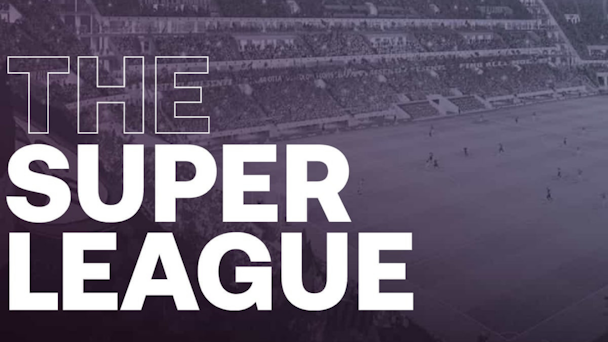European Super League reaction: will fans and sponsors forgive and forget?
Joe Weston, head of sport at We are Social, considers whether clubs have permanently damaged their brands and reputations with the supposed European Super League split that spiralled the game’s top organisations into a brief, brutal civil war.

ESL reaction: will fans and sponsors forgive and forget?
Widespread fury around the announcement and subsequent abandonment of a European Super League (ESL) has called the ownership and governance of football clubs into question.
The tidal wave of condemnation from tens of millions of fans online shone a light, in particular, on how football is owned and governed. For the majority of football supporters, their ire was focused on the owners themselves.
This will have lasting repercussions. The news cycle keeps turning, of course, but renewed focus on those at the very top – with players and management having stated that they were against the ESL proposition, or knew nothing about it – highlighted how decisions had been made secretively, in dark corridors.
The government’s announcement that ownership structures will be assessed as part of an accelerated, fan-led review will consider, for instance, if an independent regulator would have a beneficial impact. Tracey Crouch MP, who will chair this activity, has said it will “take the necessary steps to retain the game’s integrity, competitiveness and, most importantly, the bond that clubs have with its supporters and the local community”.
With fans airing frustration over the power that owners yield, it is indeed critical that clubs speak to these local communities. Those hit hardest by this controversy will need to focus on this over and above international growth in order to rebuild these bonds.
It’s incredibly important to ensure that clubs are associated with their local areas on social channels too. Local fans are the most invested; clearly engagement with these groups is key. While clubs often do great work in the community – charity and foundation work, for instance – this doesn’t always get communicated. Instead, there is a focus on on-field performance. These brands may now need to pivot to more purpose-led communications. Above all else, clubs need to mobilise their fans: we have learnt that online action can translate to significant, offline change.
Sponsors will need to monitor the situation closely too. It’s important to consider the brand values they are seeking to espouse. Does sponsorship of a particular club still sit well with their brands, and enhance them as it should?
And while we’ve seen, in recent years, a fundamental shift in how people are consuming sport, sports marketing and broadcasting can still be too dry. There is an opportunity to innovate and evolve. Today, fans are on Twitch streams and watching Insta feed highlights, with influencers dissecting the game online in new ways. Interest in football as a core product has not changed, as was suggested from on high. Rather what has happened in recent years has been a significant audience consumption shift. It’s therefore important to innovate packaging and distribution of the beautiful game. Clubs, governing bodies and broadcasters need to follow the audience as opposed to taking drastic and unwarranted action in the way this ESL proposal suggested.
In all of this, the fans must be central. As we have seen, these fans can swiftly become activists. Yet hundreds of millions were taken by surprise with the ill-conceived ESL announcement. It’s important to brief those closest to you and get them on side, to understand where influence lies in the market and to leverage it; not just to come out with a top-down, authoritarian message.
It’s also important to consider the profile of clubs. Over the last decade they have been focused on growth. On digital and social platforms, they have gone after emerging markets looking for new fans. In too many instances, they have, in so doing, ignored their core markets. There is a parallel with any type of brand here: while it’s important to secure growth markets, you must never forget those core fans. They can kick you the hardest when you make a wrong turn.
The speed and pace of distribution on social channels is unrivalled today. Football is a complex ecosystem. Clubs’ own channels were bombarded, while pundits and influencers were shouting in unison alongside the fans.
The ESL statement had no detail when it landed, either. In the momentary silence that followed the bombshell, the vacuum was filled by anger. The roll out was not considered nor tested, in any way, with the fans. Coming as it did against a backdrop of a pandemic, of empty stadiums, it ignited huge anger. Fans and influencers quickly seized ownership of the message.
Clubs must learn from this lack of transparency and engagement with local fan groups. It has magnified deep-seated anger. Shady characters and back door deals ignored the fact that football is, in fact, owned by the fans. The ESL announcement became a Pandora’s box – reminding fans of every grievance, from VAR to crazy wages, all combined in to one. It will leave a big scar.
